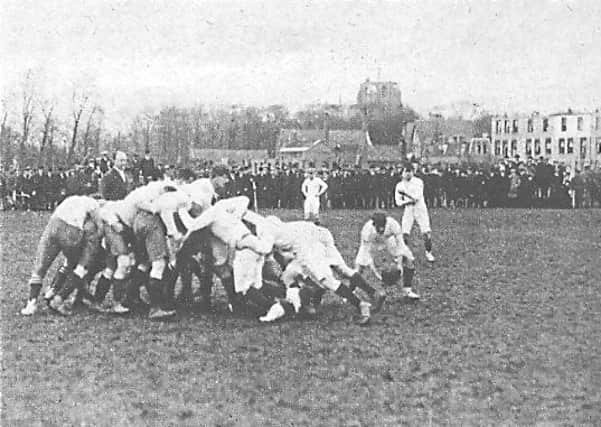WW1 rugby match between Scotland and England to be recreated


Royal Navy sailors will stage the match to commemorate a fixture organised on 5 November 1916 by a Scots naval officer interned along with three battalions in the Netherlands during the First World War.
Commodore Wilfred Henderson was in charge of 1500 men from Winston Churchill’s Royal Naval Division of surplus volunteers and reservists who were interned in wooden barracks in Groningen, dubbed HMS Timbertown.
Advertisement
Hide AdAdvertisement
Hide AdHe made sure that the men could take educational classes and train in sports to develop themselves and boost morale.
When inter-battalion rugby matches attracted local attention, two exhibition matches were organised in the city of Leeuwarden, 40 miles away, between teams representing “Schotland” and “Engeland”.
The first ever “international” matches on Dutch soil attracted thousands of paying spectators.
Subsequent games between the British internees and students from Amsterdam, Rotterdam, Delft and The Hague, led to the formation of the first rugby clubs in the Netherlands.
Ken Wright, founder of the Rugby MAD Foundation (Make a Difference through Rugby), together with the Royal Navy Rugby Union, have arranged for a fixture between teams of sailors from north and south of the Border to be played to mark the 100th anniversary.
The Centennial Memorial Match will be played at the grounds of Rugby Club Greate Pier in Leeuwarden.
The winner will be presented with the Commodore Wilfred Henderson Cup.
Advertisement
Hide AdAdvertisement
Hide AdMr Wright said today: “It is an historic moment as these games were the first rugby internationals played on Dutch turf.
“It is largely because of them that rugby became popular in the Netherlands.”
The matches also had a royal link.
Frederick George Glassborow, the paternal great grandfather of the Duchess of Cambridge, is believed to have played for the English, who won the 5 November 1916 game by 16-12.
Mr Wright said: “We know that Catherine’s great grandfather was at the camp. We have a picture of him with one of the battalion rugby teams, and it is very likely he was involved.”
A later match took place in 1918 between “Blues and Whites”, by which point the camp also had soldiers who had arrived there as part of Britain’s prisoner exchange with Germany.
Organisers of the commemorative fixture hope that descendants of the men held in the camp will attend, including the great grandson of Commodore Henderson.